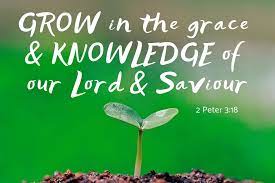The New Year
The new year has arrived with festive gatherings and events. Some of us have, as is our habit, made “traditional” New Year’s resolutions (which will be quickly abandoned in 30 days or less).
It is my prayer as we prepare for 2025 with new beginnings, that we also evaluate our spiritual growth and progress. Are we growing closer to God or are we subtly drifting away?
In 2024, where did we spend our time and our resources? Did we invest in things eternal (Matthew 6: 19-20) or put our hope in things that reflect the values of this world: power, influence, and material wealth?
As we move into this new year, let us remember that we are new creatures in Christ (2 Corinthians 5:17). Let’s let go of those “old things”. Let’s rediscover and embrace our identity in Christ.
“If anyone is in Christ, he is a new creation.”
Christ’s work of redemption presents us with the opportunity to experience a new beginning with God. No longer separated by sin, we can now be reconciled with God and enjoy peace with our fellowman (Romans 5:1). To experience this new beginning, we must first possess a clear understanding of our new identity in Christ (1 John 5:4).
Identity is the condition of being a specific person or thing. Our personal identity is the result of the people, places, and things we connect or associate with. This is also true of our spiritual identity. What is feeding our identity in the 21st century?
While personal identity looks at outward influences, spiritual identity, however, looks at two things: (1) the Person of Jesus Christ and (2) the Place of the Cross.
“Old things have passed away.”
Jesus Christ took on our physical identity (in his fleshly body) so that we can become partakers of his spiritual identity (Hebrew 12:14-15). This divine incarnation resulted in the perfect sacrifice required to satisfy the penalty for sin. In exchange, we have eternal life and are now children of God (Romans 8:16).
In the shadow of the Cross, we leave our old nature and become crucified with Christ (Galatians 2:20). We die to sin and its hold upon our life (Romans 6:11). It is in His resurrection, that we received new life for our new beginning.
“Behold, all things have become new.”
Let’s flip the switch in 2025 and consider what God has invested in us. Our responsibility is to daily live out the new identity Christ has provided. Once we fully grasp that, we are positioned to receive “all the fullness of God” (John 1:16).
Our hope and assurance rests fully on the completed work of Jesus Christ. HE IS our New Beginning (Colossians 1:18).










